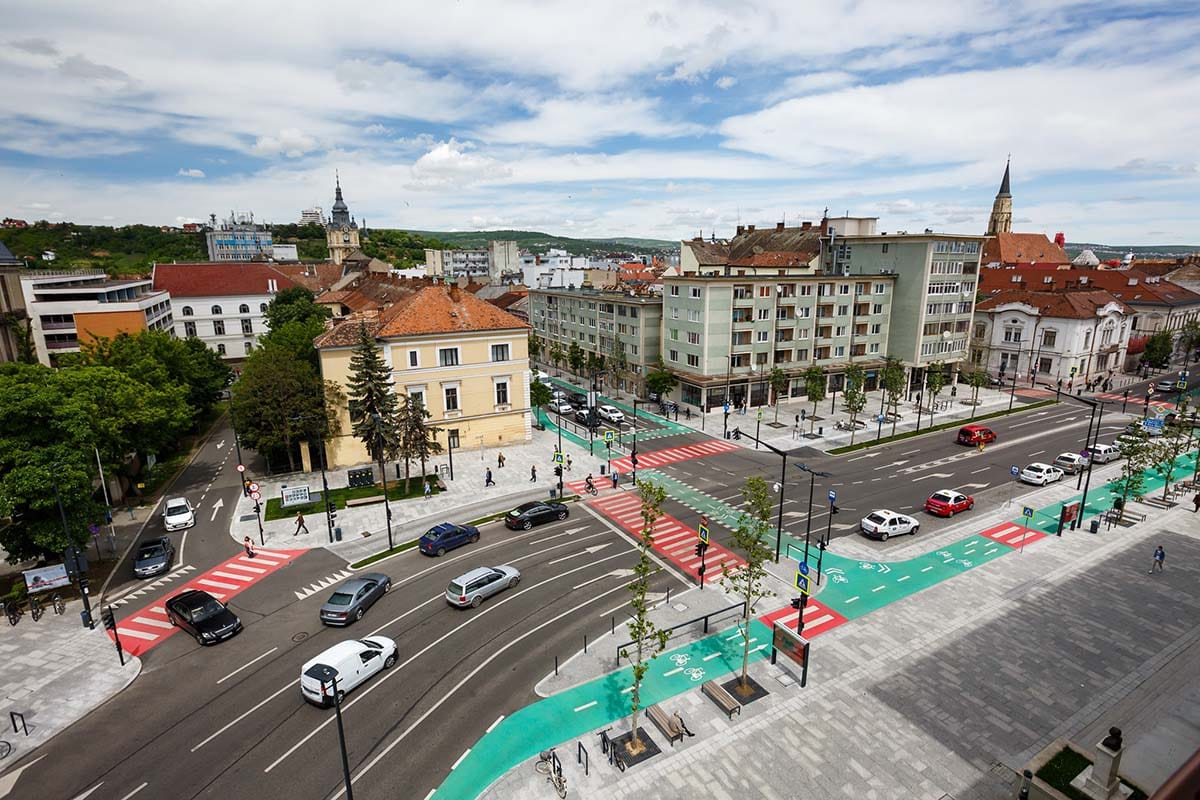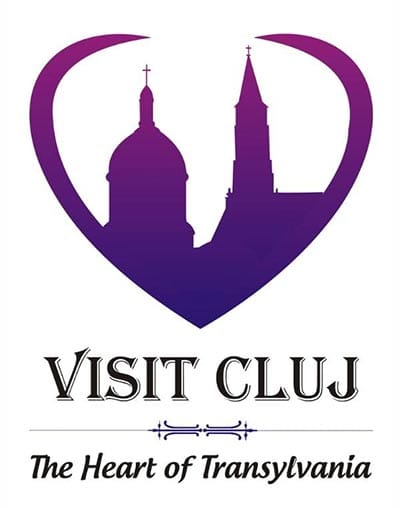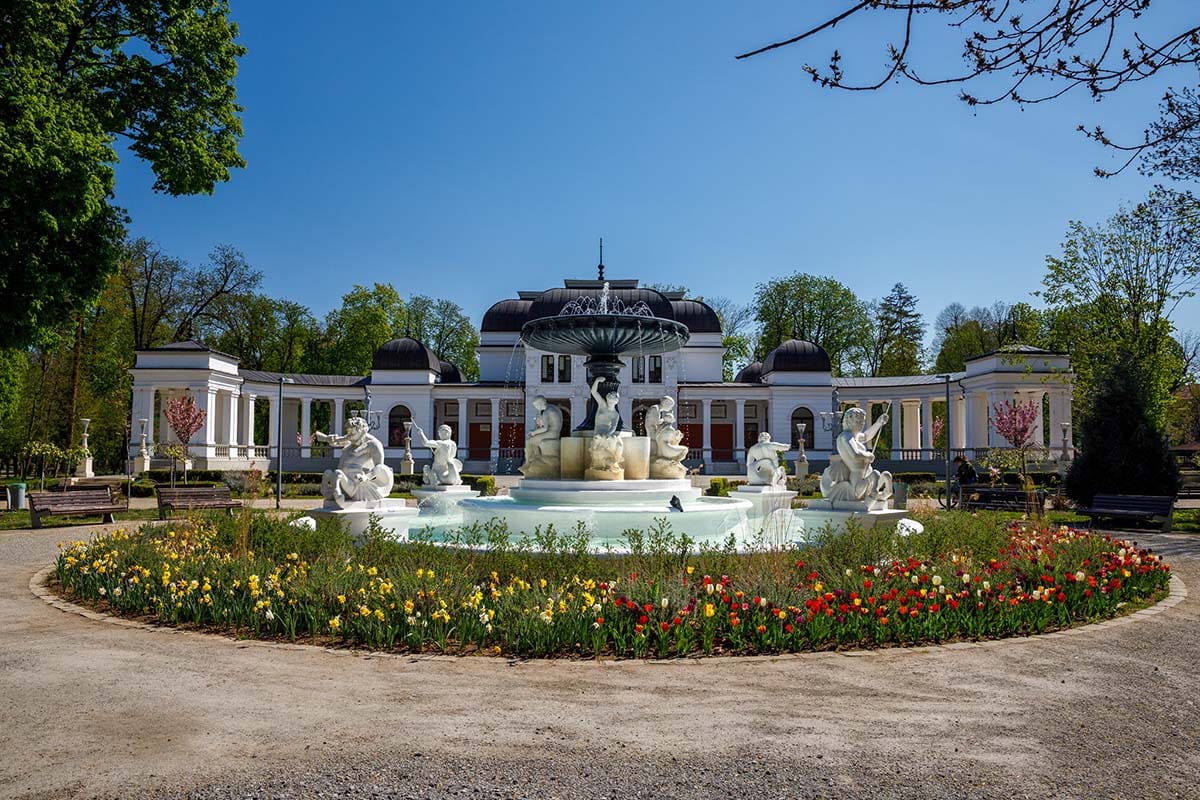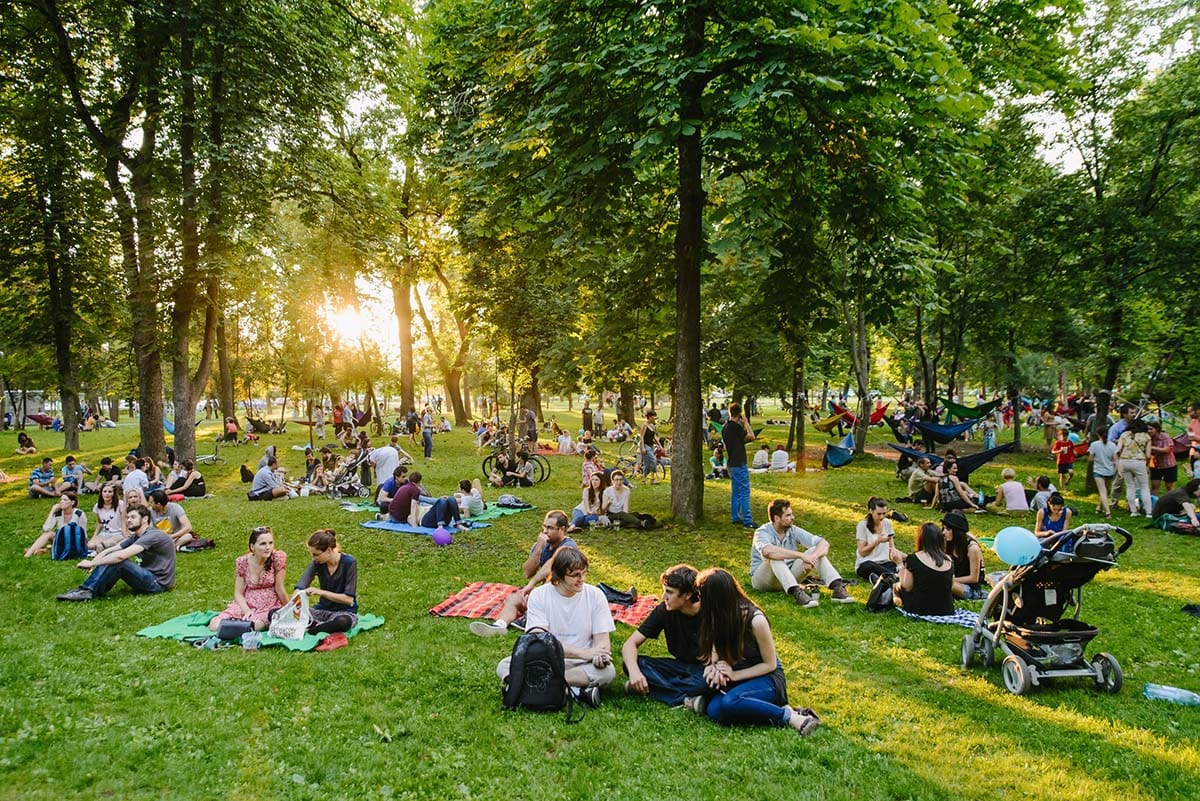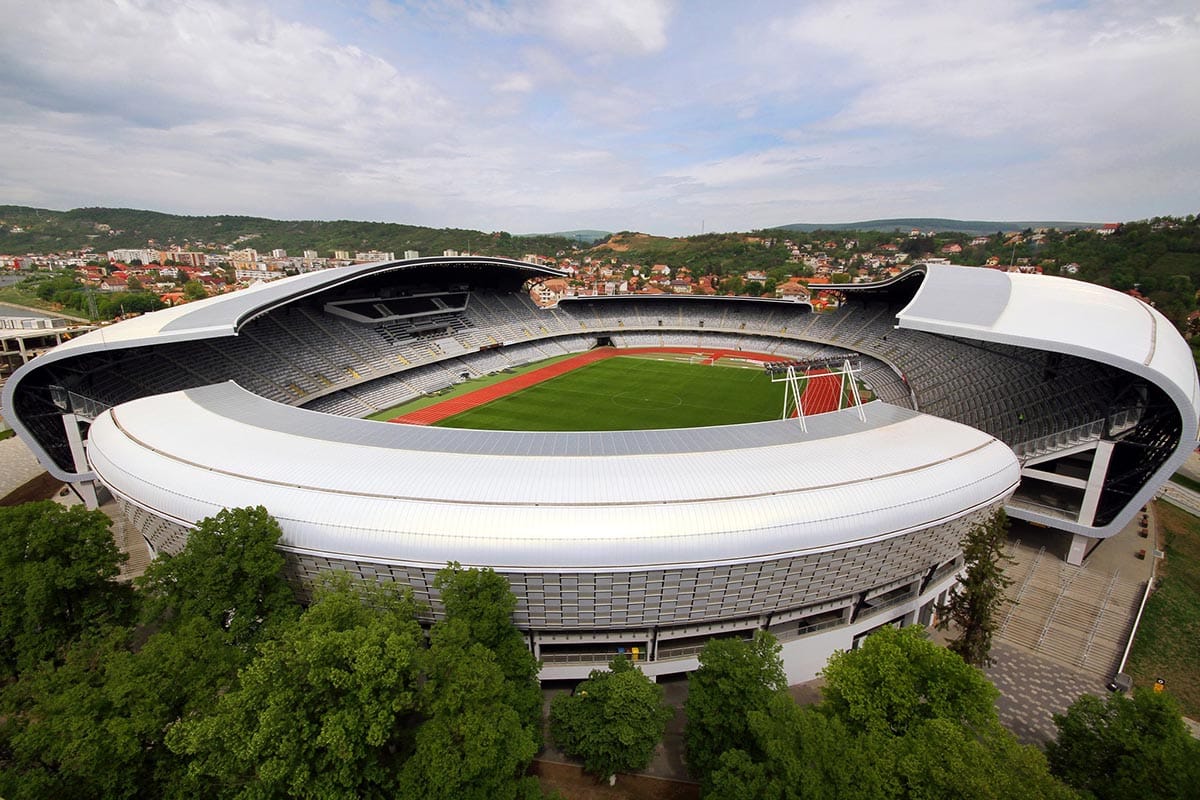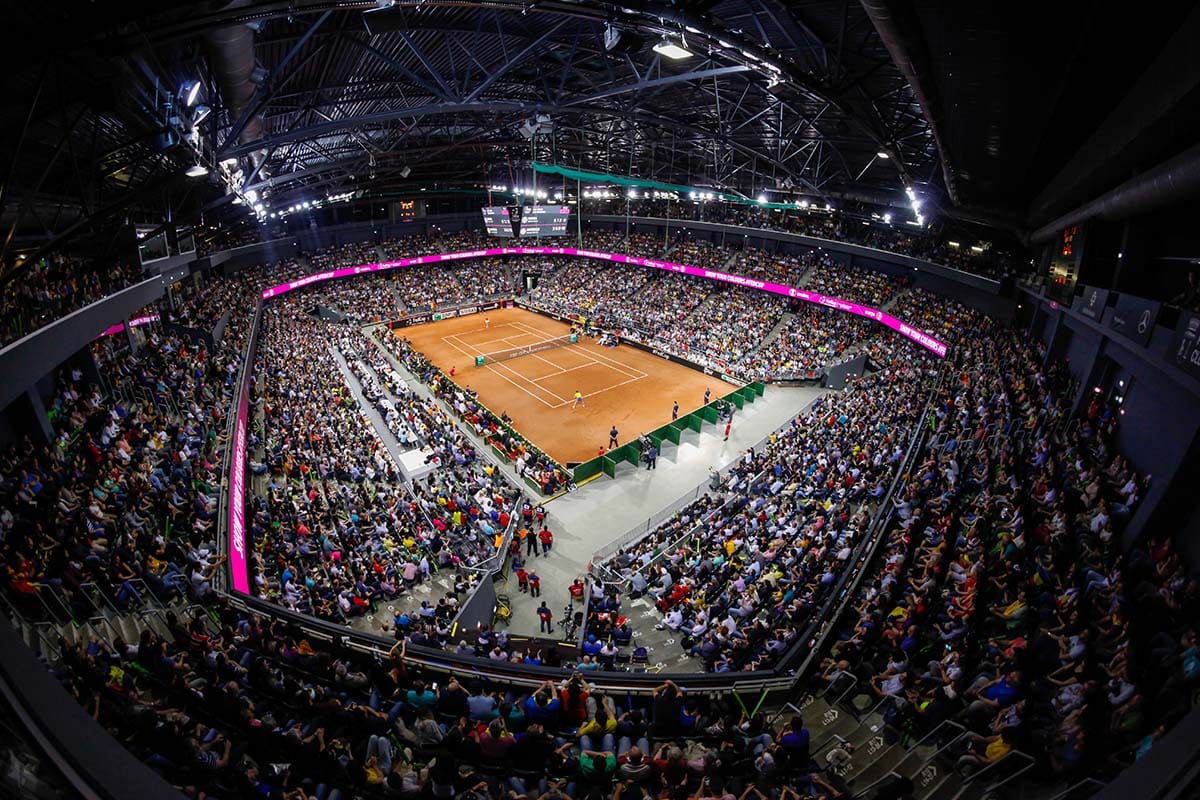Cluj-Napoca is a growing community where Romanian values and ideals seamlessly merge with the vision of a United Europe. We have learned the art of living together in a vibrant and dynamic city that values education, innovation, openness and culture, multiculturalism and involvement.
In a European top that measures the quality of life, our city is the best ranked city in Romania, offering high-standard public services. What I would like to tell in particular to a tourist, on a leisure or business trip, about us is that after the capital city, Cluj-Napoca is the city with the greatest cultural vitality in Romania.
The over 1400 cultural events transform Cluj-Napoca into a cosmopolitan and effervescent destination, and events such as Untold, Electric Castle, Transylvania International Film Festival or Jazz in the Park place the city on the map of major international festivals.
Cluj-Napoca has become, in the last decade, the city with the most dynamic evolution in Romania, being also recognised as one of the places where the artistic avant-garde of the 21st century is redefined. In recent years, our city has enjoyed international recognition, obtaining both the title of the European Youth Capital in 2015 and the European City of Sports in 2018.
Cluj community permanently creates favourable contexts for using the sport characteristic of the city at its best. Our city hosts international sporting events every year: Eurobasket, FED Cup, Davis Cup, national and European championships.
Moreover, recurring events such as the Sports Festival or the Cluj-Napoca International Marathon are important points on the world agenda of grassroots sports, bringing to our city participants and spectators from all over the world.
Last but not least, with an academic university environment of excellence, Cluj-Napoca has become one of the main growth poles in Romania and a hub of innovation, research and IT. The alert, vibrant and dynamic pace set by the community of Cluj – with more than 100.000 students – seamlessly merges with the bohemian atmosphere and the historical context, bestowing a unique identity of the city.
Cluj has built its essence through the people in the community, who have succeeded and continue to dedicate themselves to the city for making progress in every field. Once one connects to the pulse of the city, one will see why Cluj-Napoca is also called the Heart of Transylvania.
The city of Cluj-Napoca is the second largest in Romania, after Bucharest, but is the first in terms of quality of life. In 2018, Cluj-Napoca was the European City of Sports, and in 2015 it was the European Youth Capital. In 2020 Cluj-Napoca was one of the runner-ups in the competition for the title of European Capital of Innovation.
The quality of life in Cluj-Napoca is given credit in various international rankings. In 2018, Cluj-Napoca was ranked 39th at European level and 97th in the world.
According to another study, published by the European Commission in 2016, 96% of Cluj-Napoca inhabitants were happy to live here. They rated positively the access to shops, cultural institutions and events and also job opportunities.
Unemployment rate in Cluj-Napoca is less than 1 percent, but employers still find human resources thanks to the universities of Cluj, attracting talented young people from all over the world. Cluj is also considered the friendliest city in Europe with foreigners, according to the study of Quality of Life in European Cities 2015.
According to the Huffington Post, Cluj-Napoca is on the list of cities that redefine the art of the future, and sociological studies show that Cluj enjoys huge urban visibility. International publications such as USA Today, CNN, Lonely Planet, The Calvert Journal, Vogue or The Economist, recommend Cluj as a tourist destination thanks to its historical heritage, gastronomy, festivals or the Hoia Forest, which has the international reputation of a haunted forest.
Cluj – Smart city
Cluj-Napoca is one of the Romanian cities where new technologies are used to improve the quality of life of the inhabitants. The city is remodelled with the help of European money to make it more friendly. Thus, public lighting uses LEDs and is controlled via applications by City Hall Employees.
Cluj was the first city in Romania to start using electric buses for public transport, and after 2025 public transport will be entirely electric.
Starting 2019, special stands for electric taxis will be set up. Cluj inhabitants pay parking, taxes by SMS and petitions can be submitted online and town-planning certificates can be obtained online as well.
Mobile applications are used to book places in the Gheorgheni training camp, with free access, and the streets will have sensors that will measure the degree of pollution and noise. An increasing number of virtual reality applications are available for tourists, and Cluj-Napoca is becoming a smart city.
Cluj – University and Medical
Cluj-Napoca is the most important university and medical centre in Romania. The university elite is represented by six State universities. The oldest, largest and best ranked in the international tops is Babeș-Bolyai University. It was founded in 1581 by the King of Poland, Stepen Báthory. Currently, Babeș-Bolyai University is ranked among the top 5% universities around the world and includes 21 faculties which provide lectures in Romanian, Hungarian, German, English and French.
The University in Cluj has the most complex system of theological studies on the continent, with four faculties of Orthodox, Greek-Catholic, Roman Catholic and Protestant theology and a Jewish studies institute.
Cluj-Napoca is a growing community where Romanian values and ideals seamlessly merge with the vision of a United Europe.
The Technical University of Cluj-Napoca offers lectures in three languages, i.e. Romania, English and German. “Iuliu Hațieganu” University of Medicine and Pharmacy offers lectures in Romanian, English and French. The Faculty of General Medicine is the faculty with the most numerous foreign students in Romania: more than 2.500 young people study here.
The University of Agricultural Sciences and Veterinary Medicine offers lectures in Romania, English and French, and the Faculty of Veterinary Medicine is among Europe’s best.
The university of Art and Design is one of the world’s best-known painting schools thanks to the new series of graduates, and “Gheorghe Dima” Academy of Music prepares young people who are skilful to perform on the world’s greatest scenes.
In the medical field, Cluj-Napoca has become a destination for patients all over the world. The most sought-after clinics are dentistry, ophthalmology and aesthetic surgery. The medical fitting of clinics and staff training are of Western level, but the prices are very low. Cluj is also a reference centre in the field of kidney, oncology and cardiology transplantation.
Cluj – The Treasure City of Transylvania
One of the most beautiful names that Cluj-Napoca has had over the history was the Treasure City. This name reflects the beauty and prosperity of the city.
Some of the most beautiful corners of Cluj-Napoca are the two botanical gardens. Cluj is one of the few European cities to host two such gardens. The smallest is set up within the University of Agricultural Sciences and Veterinary Medicine. The largest and most beautiful has an area of 14 hectares and was fitted out by the scientist Alexandru Borza, also the garden includes numerous greenhouses.
It houses more than 10.000 plant species and features Japanese and Roman Garden areas. Those who love green spaces can also climb the Cetățuia Hill, erected in the 18th century as a star-shaped Austrian fortress, of which only four buildings endured. The Belvedere Hotel was erected during the communist period on the hill, then, in 1995, a huge iron cross was added on the hill.
Another green space that hosts many monuments is the Central Park, with a history of nearly two centuries. Its paths lead tourists to Central Lake, for rowing in summer, and skating in winter. Among the most beautiful park monuments is the Casino Cultural Center, built in the 19th century by Lajos Pakey. The Center hosts many cultural events, such as the Royal Caroling. Another important cultural centre is the Tailor’s Bastion, a 17th – century defence tower.
Cluj – The city with the best Sports Infrastructure in Romania
Cluj-Napoca held the title of European City of Sports in 2018. This title represented an acknowledgement of the city with the best infrastructure in Romania.
Cluj Arena stadium, the most beautiful in Romania, is representative of the city. It was rebuilt in 2011 and is rated five stars. It features both a football pitch and athletic track for Olympic competitions. It has a capacity of 30.000 and is the host of FC Universitatea Cluj football team, founded in 1919, and of other national football teams.
The second stadium in Cluj-Napoca is “Dr. Constantin Rădulescu”, rated four-star by UEFA. It has a capacity of 23.000 seats, of which 14.000 are covered. It is the host of Romania’s football champion, CFR Cluj, but also of national teams. It was upgraded in 2008.
BT Arena Polyvalent Hall is the largest in Romania. It has a capacity of 10.000 seats. It hosted international competitions such as Eurobasket, the European Artistic Gymnastics Championships, and FED Cup matches.
Horia Damian Sports Hall has a capacity of 3.000 seats and hosts many international handball, basketball, volleyball or judo and karate championships. It has recently hosted the Challenge Cup final in men’s handball.
Gheorgheni Training camp is the largest and most modern sporting camp, with free access for all who want to practise sports. It features three mini-football pitches, two badminton courts, three tennis courts, two beach volley courts, two basketball courts, a bowling alley, a table tennis room, a multi-purpose hall, a parkour area, a running track, a paintball field, outdoor fitness area, children’s playgrounds, adventure parks, a bike track, climbing area, roller-coaster, amphitheatre and a leisure area. It was opened in 2016.
Iuliu Hațieganu Sports Park has 25 hectares and belongs to Babeș-Bolyai University. It was founded in 1931, and in 1936 it was awarded during a sports architecture exhibition at the Berlin Olympics. It features a football pitch, rugby field, athletics track, sports halls, and a swimming pool.
The Olympics Swimming Area of the Technical University is located next to the Iuliu Hațieganu Sports Park. It includes two large pools, one outdoor and one indoor, as well as a children’s pool, and a beach volleyball court. Another sports area is the Central Park, with running alleyways, bike tracks, an outdoor fitness area and a pleasure-craft lake.
clujbusiness.ro
Cluj-Napoca European City of Sports
Emil Boc

